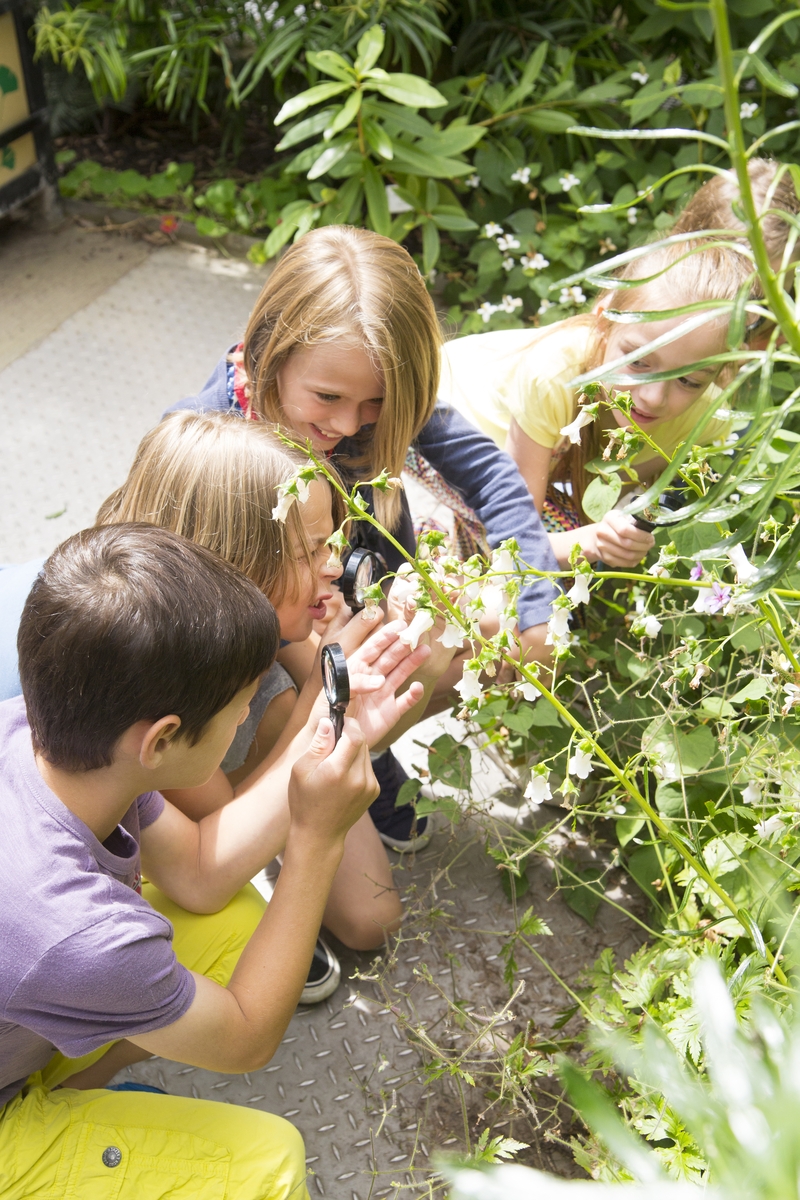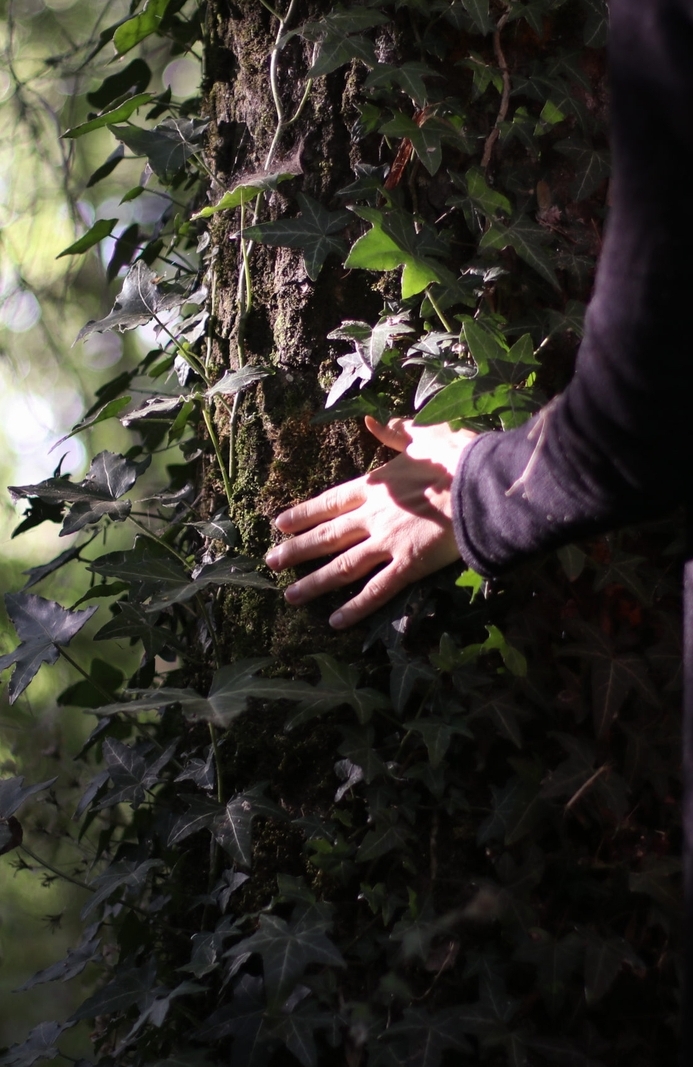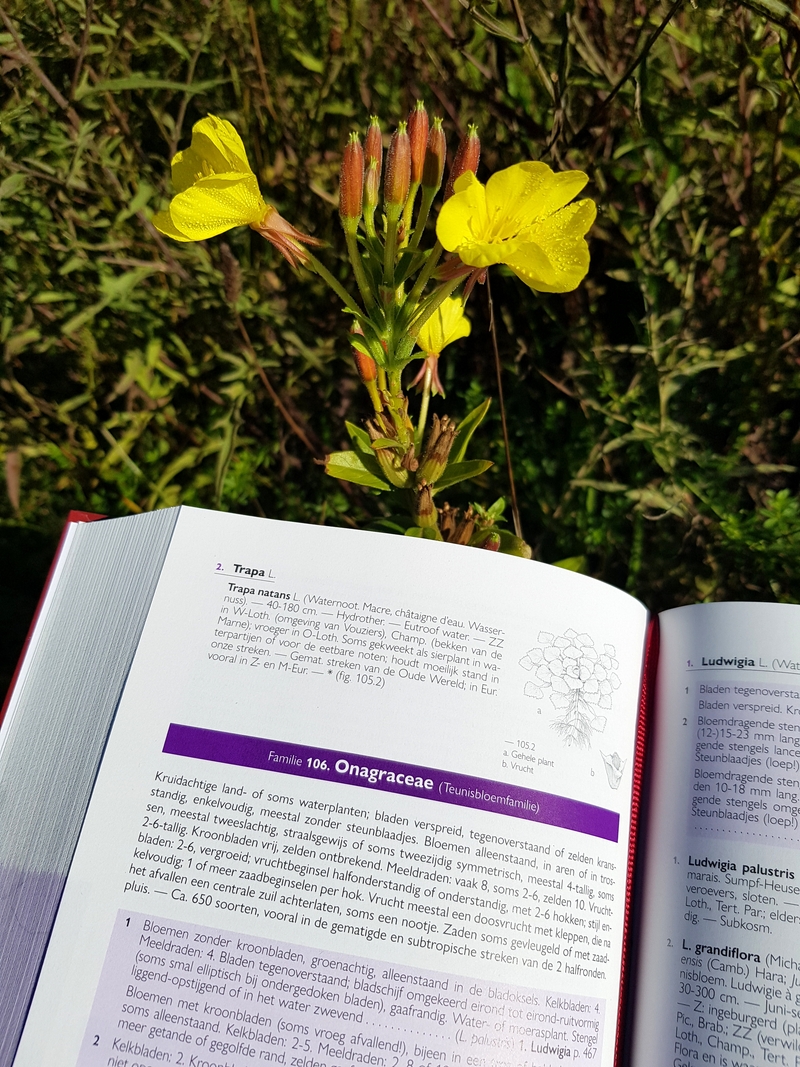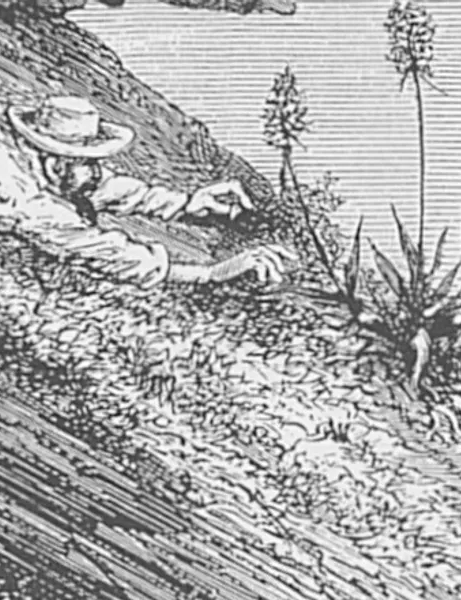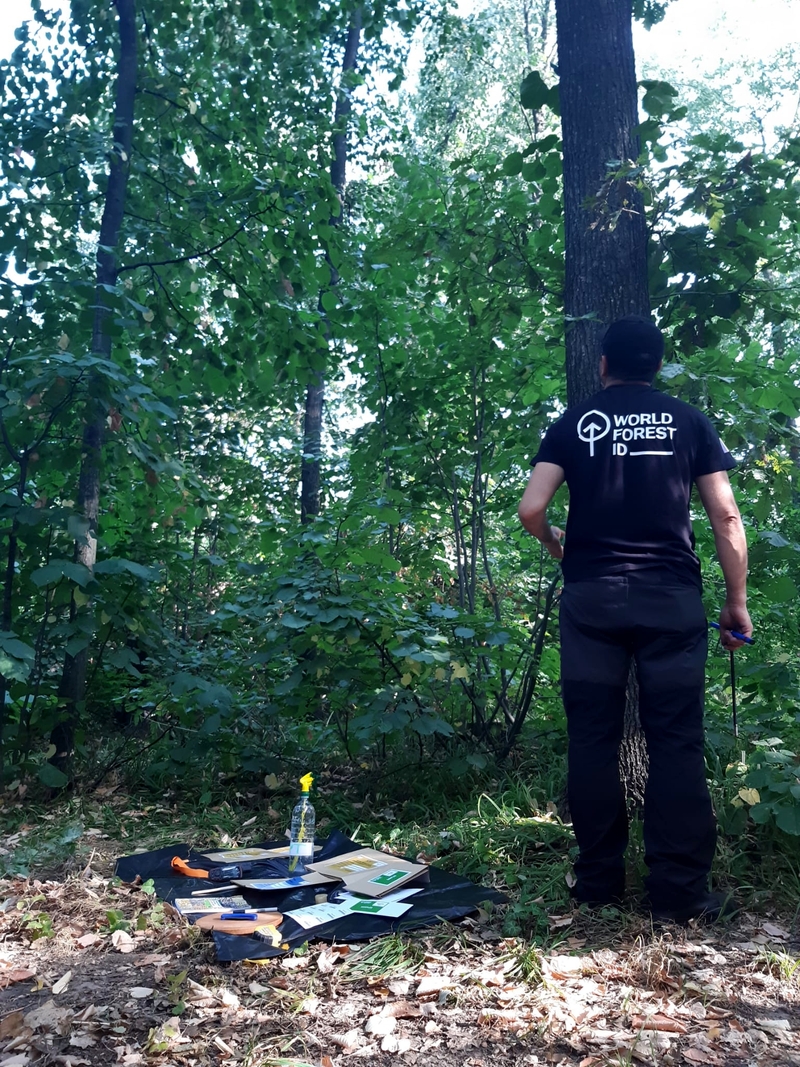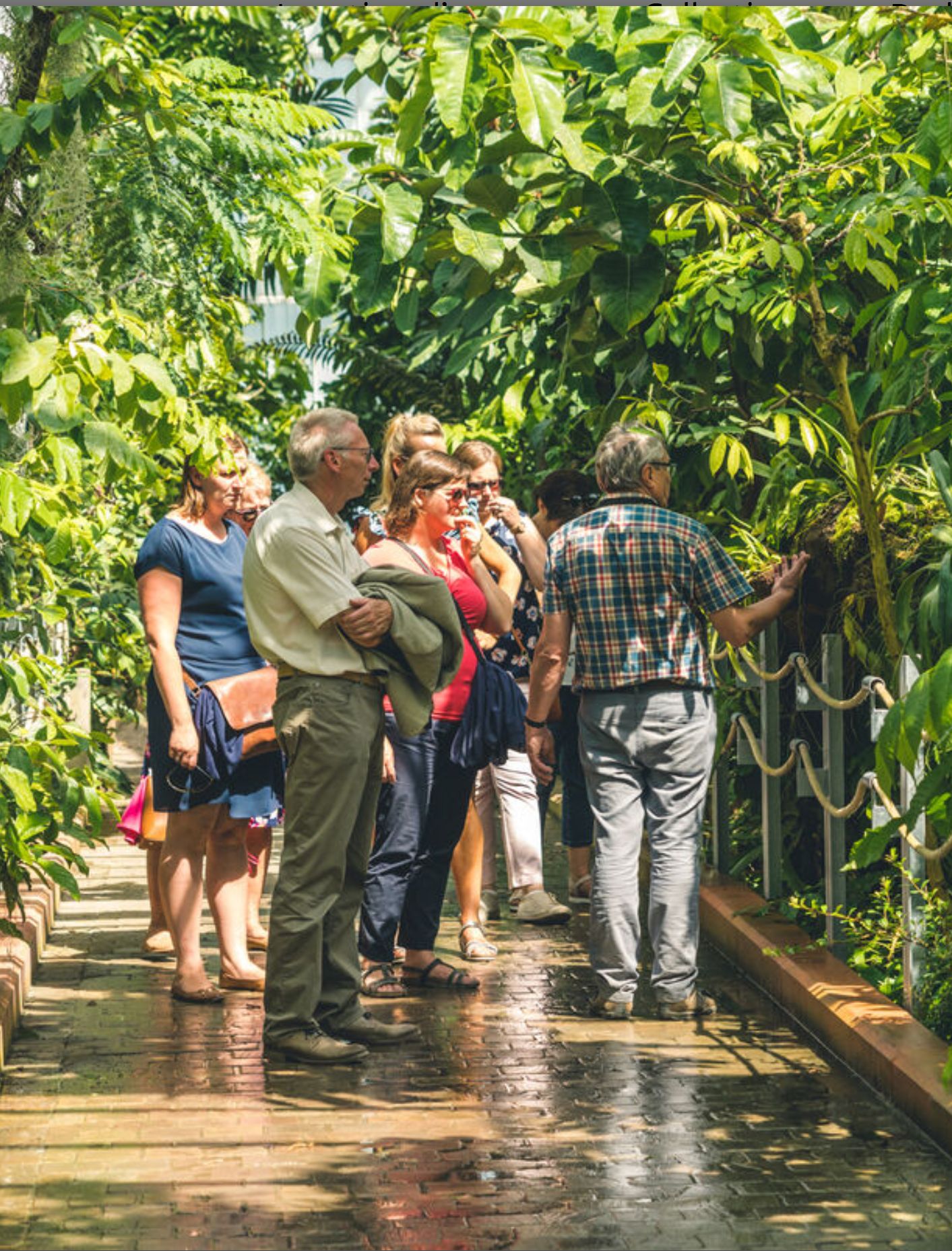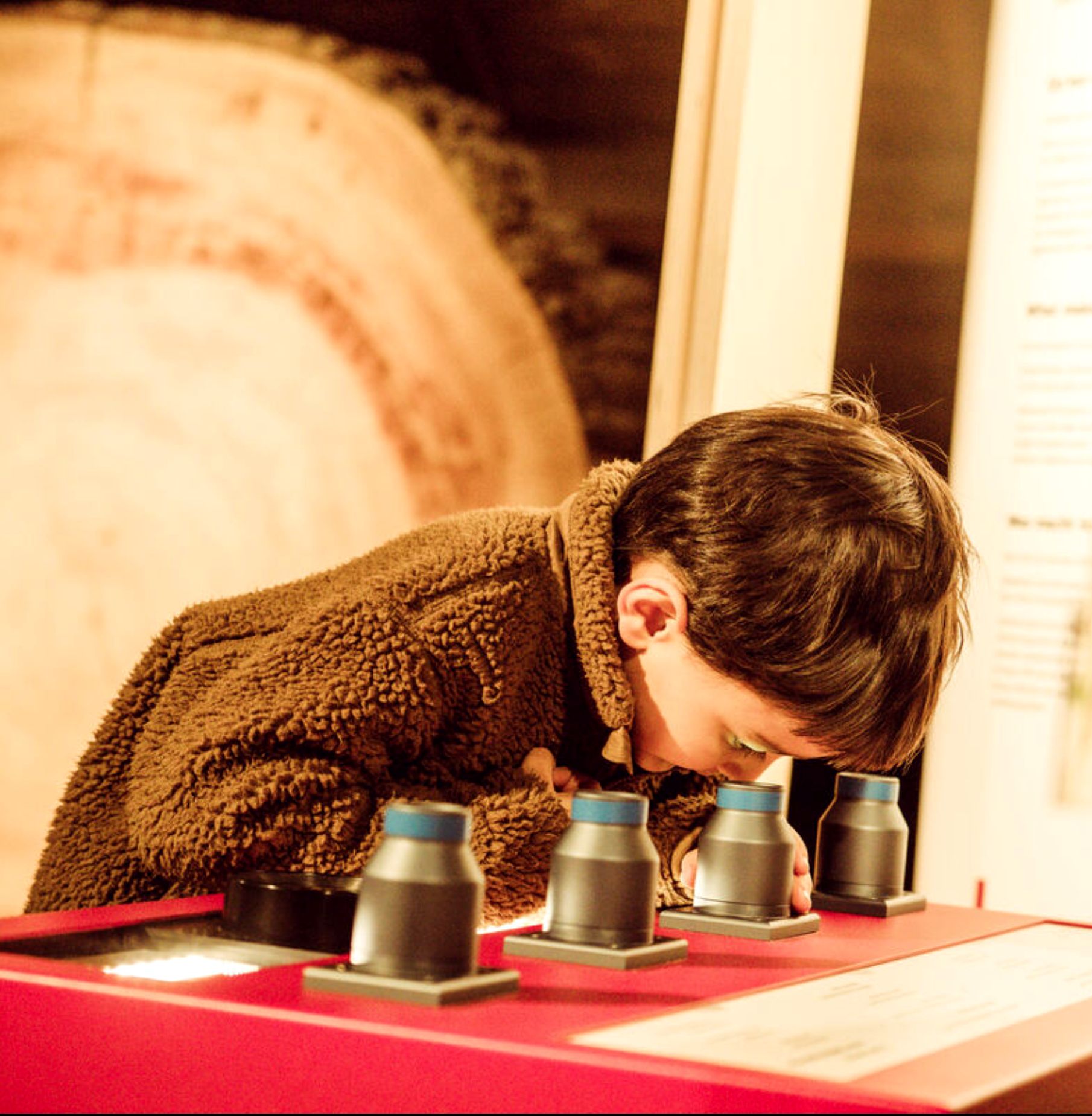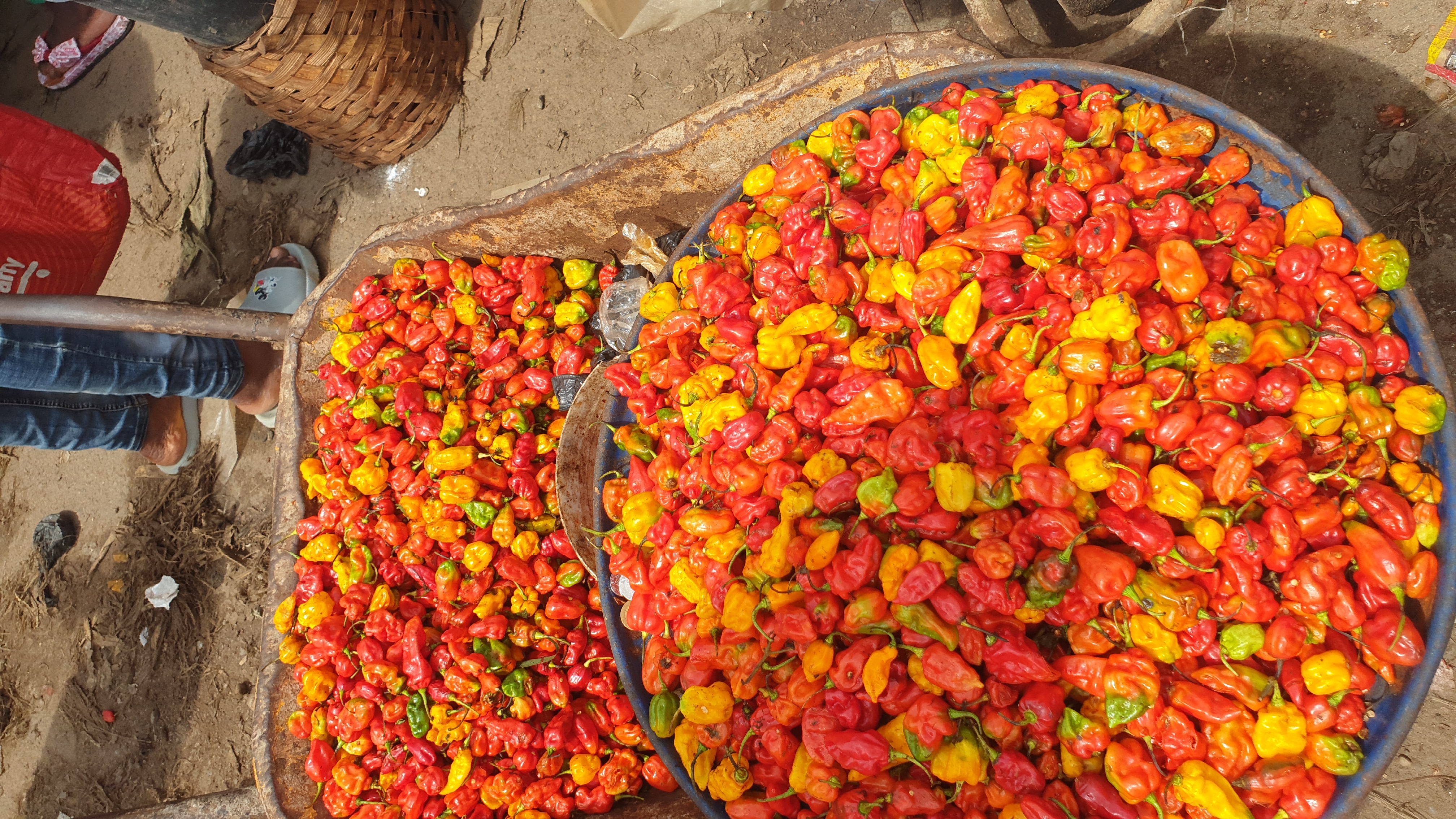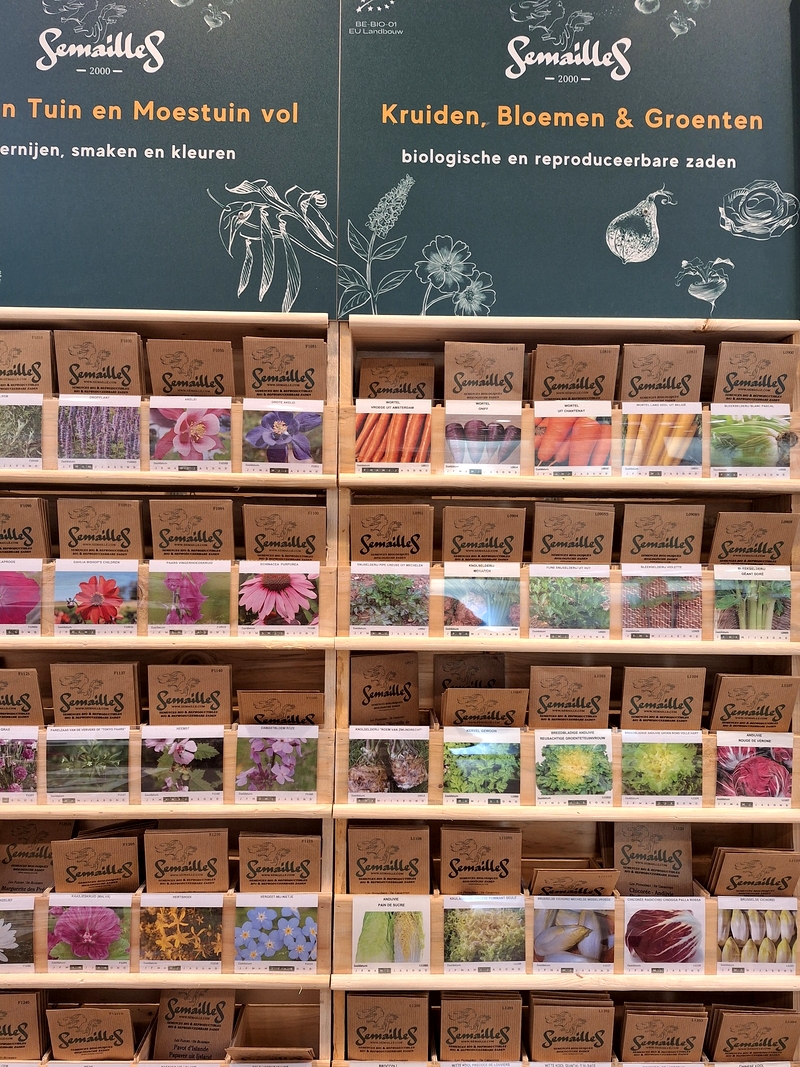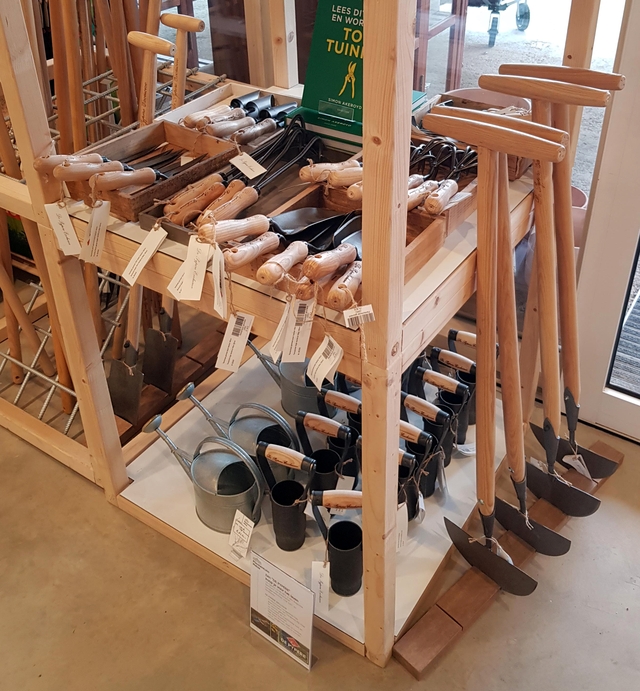 Musa n°77 - Spring 2024
|
||||
 |
||||
|
|
From April onwards, French-speaking schools will be able to discover new workshops in the Garden, inaugurated as part of Printemps des Sciences. These workshops have been designed to fit in with school curricula, with the emphasis on the plant world, of course, and using a combination of approaches (fun, interactive, cognitive, imaginary, etc.) used in Environmental Education! There's something for every class, with workshops from nursery 2 right through to secondary 6.
|
|||
|
Photo credit: Nathalie Frennet |
We've always known it, and science confirms it: even brief immersion in natural environments has a positive impact on our well-being. How could it be otherwise? Our species has evolved over hundreds of thousands of years as an intrinsic strand in the web of life, and the story of evolution is written in our cells. Engaging body and soul with all our senses in a living environment boosts our immunity, soothes stress and anxiety, reduces hyperactivity and hypertension, and encourages attention, concentration and inspiration... |
|||
|
|
Spring has arrived and it is time to get out into the fresh air and discover some plants. To help you do this, there is nothing better than the new edition of the Flora of Belgium, recently published in French and Dutch by the Botanic Garden. With each new edition, the Botanic Garden takes great care to reflect the changes that have occurred in terms of distribution, naming and classification, as well as new plant species that have recently established themselves. This way, this reference work remains the most accurate and complete for our territory. This edition also has a completely new look, hundreds of new illustrations and user-friendly determination keys to help you identify species. This new Flora is the ideal complement to the richly illustrated book "Field guide to the wild plants of Benelux", also published by Meise Botanic Garden. It is published in English, French and Dutch. It covers more than 1,300 species of wild plants that can be observed. The easy-to-use determination keys and clear concise descriptions, colour photos and distribution maps make identifying the different species easy. This field guide is the perfect companion for novice botanists and walkers who want to discover the surprisingly rich flora near us. All these books are available in our Garden Shop or in our webshop. |
|||
|
|
At the start of 2024, Meise Botanic Garden, along with 24 other tourism operators in Flanders, was awarded the prestigious "Green Key" sustainability label. This recognition marks an important step in the growth of sustainable tourism in the region. To obtain the label, companies must comply with strict environmental and sustainable development standards. The continuous efforts of Meise Botanic Garden in the field of sustainability have enabled it to obtain the Green Key label. For the Botanic Garden, this label is both recognition of the work carried out under its management plan and encouragement to continue its efforts to develop in a sustainable and environmentally-friendly way. |
|||
|
|
Until 14 April, the Botanic Garden is hosting a fascinating exhibition on Belgian botanical explorers from 1830 to 1865. This key period saw the emergence of the 'plant hunters' who contributed to the worldwide success of Belgian horticulture. You will explore the philosophical and material context surrounding the nascent Belgium, the involvement of the bourgeoisie in the development of horticulture, and follow in the footsteps of the adventurer-naturalists as they explored the Americas. The exhibition also reveals the evolution of botanical exploration, with the gradual withdrawal of the Belgian state in favour of the private sector and the creation of companies importing tropical plants. You will discover the names of the great Belgian collectors, as well as those of their patrons, employers, politicians and wealthy collectors who left their mark on this botanical quest. The exhibition is included in the daily admission ticket to the Botanic Garden. |
|||
|
|
Forest preservation has become a global priority. However, deforestation and illegal timber trade remain persistent issues threatening these ecosystems. Researchers have developed innovative scientific methods to identify timber origins and combat these harmful practices, a study that has just been published in the prestigious journal Nature Plants. The study led to the creation of an extensive reference database on Eastern European timber, including birch, beech, pine, and oak, tailored to products under sanctions after the Ukraine invasion. These data facilitated the development of methods to verify the authenticity of timber origins and even accurately predict the location of its harvest. "We are delighted to present these significant advancements in the fight against illegal timber trade," says Victor Deklerck, Director of Science at World Forest ID, based at Meise Botanic Garden. "Our methods offer a concrete solution to ensure that the timber used comes from legal and sustainable sources, thereby contributing to the preservation of these precious forest ecosystems. Thanks to these new scientific methods, inspectors from Belgium's Federal Public Service (FPS) Environment recently found evidence that Russian timber was being imported despite the embargo." |
|||
 |
||||
|
|
|
|||
 |
||||
|
|
The Capsicum plant genus, from the Solanaceae family, includes all the varieties of chillies and peppers and is native to Mexico and the Caribbean. These plants are among the oldest agricultural crops in the world. In 1492, Christopher Columbus was looking for the expensive, aromatic pepper in the tropical plant Piper nigrum. He found Capsicum, whose seeds found their way to Europe and then spread to Asia and Africa. The three main cultivated species are Capsicum annuum, C. frutescens and C. chinense. There are over 3,000 varieties worldwide. There are many cultivars, ranging from annual species to perennial shrubs almost 2 m high. The fruits are hollow and contain a large number of seeds on fleshy walls. Cultivars vary in size, colour (red, yellow, purple, etc.), shape and pungency. Capsaicin, an ingredient found in the flesh and seeds of pungent varieties, is responsible for the pungency and health benefits. The spiciness of chillies is measured by their capsaicin content on the Scoville scale. Mild chillies have a value of 0 SHU (SHU = Scoville Heat Units), a dish is perceived by Belgians as spicy around 500 to 1000 SHU. Tabasco contains up to 5000 SHU. Capsicum chinense 'Carolina Reaper' held the world record with 1.5 million SHU until October 2023. Today, it's the Pepper X cultivar that's at the top of the ladder, with an SHU of 2.69 million. |
|||
|
Our Garden Shop at Empress Charlotte's Entrance is the perfect place to give and receive gifts: books or toys for children, seeds and gardening equipment, indoor or outdoor plants, and beautiful decorative or practical items for the home |
||||
|
|
It's spring, and the sowing and planting season is starting! Discover our wide selection of seeds from "Semailles", a family-run business offering almost 750 varieties of organic, reproducible seeds. Specialising in old vegetable varieties, aromatic plants and flowers, Semailles offers locally produced seeds that are perfectly adapted to our environment. By choosing our seeds, you are helping to preserve a precious natural heritage. Price : from €3.20 For sale at the Garden Shop. |
|||
|
|
Our shop also offers a wide range of quality gardening tools from the "De Pyrere" brand. Carefully selected to help you with your gardening work all season long. From pitchforks and spades to planters, rakes and gardening gloves, you'll find everything you need to create a beautiful garden. And don't forget the seasonal plant selections in our Shop. Price: from around €20 to €65, depending on the tools. For sale at the Garden Shop. |
|||
.jpg) |
||||
|
Publisher
|
||||




